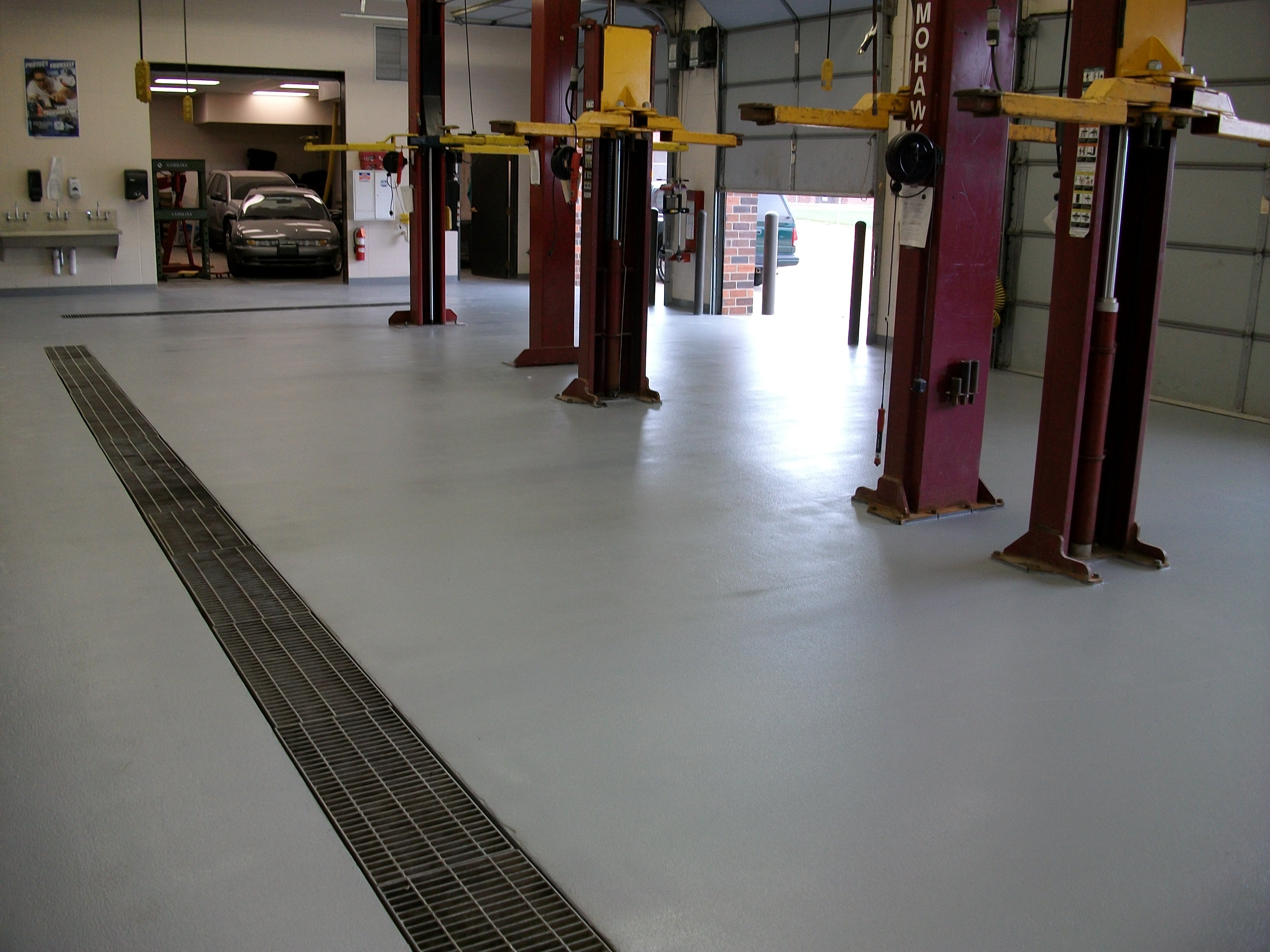

August 4th, 2025
3 min read
By Tom Dassie

In an automotive service bay, the floor takes a beating every day. Spills, drops, heavy vehicles, and constant foot traffic all contribute to the wear and tear. But one of the biggest threats to auto shop flooring isn’t the weight—it’s the chemical exposure.
Brake fluid, oil, grease, solvents, and cleaning agents can cause staining, surface breakdown, and even structural damage if your floors aren’t properly protected. At CustomCrete, we’ve helped auto repair shops, dealerships, and service centers across the Midwest upgrade their floors to handle the harsh realities of daily automotive work—delivering systems that resist chemicals, reduce maintenance, and hold up to real-world demands.
In this blog, we’ll break down how these chemicals affect your flooring, what materials offer the best resistance, and how to prevent costly damage in the first place.
Auto shops are exposed to more than just dirt. Many of the chemicals used in maintenance and repair—like brake fluid, gear oil, and transmission fluid—are caustic. If they seep into unprotected concrete, they can:
Over time, this can result in cracks, peeling coatings, and concrete erosion—especially in high-use areas like lift zones or fluid change stations. In some cases, it also leads to code violations or customer-facing aesthetic issues.
The solution? Choosing a flooring system designed for chemical-heavy environments.

Here’s a closer look at what your flooring is up against:
Brake fluid is hygroscopic (meaning it absorbs moisture) and often corrosive to concrete. It can break down coatings and penetrate exposed surfaces quickly if not cleaned promptly.
Motor oil, gear oil, and grease may seem harmless, but they are tough to remove and often cause permanent stains. Over time, these substances create slippery surfaces and may soften weak coatings.
Degreasers and chemical cleaners can be just as damaging as the fluids they’re used to clean. Without chemical resistance, these agents can cause bubbling, fading, or peeling of coatings.
The ideal auto shop flooring system is not just durable—it actively resists damage from all of the above. Here are key traits to look for:
Several flooring systems are well-suited for chemical-heavy environments like auto shops. Here’s how they compare:
Epoxy is one of the most popular coatings for auto shop flooring. When professionally installed and properly maintained, it forms a seamless, high-gloss surface that’s resistant to most shop fluids.
Pros:
Cons:
This is the gold standard for harsh environments. Urethane cement is a high-performance coating that’s thicker, stronger, and more chemical-resistant than most epoxy alone.
Pros:
Cons:
Some facilities opt for a combination of epoxy base coats with urethane topcoats or additional sealers to improve durability and chemical resistance.
This is a good option for budget-conscious shops that still want to invest in long-term protection.
Even the best flooring system needs some upkeep to stay at its best. Here’s how to maximize your investment:
Your shop floor is exposed to some of the toughest conditions in any workspace. Choosing the right auto shop flooring—and maintaining it well—is critical for performance, safety, and professional appearance.
Whether you’re building a new service bay or renovating an existing one, don’t settle for basic concrete or coatings that can’t take the heat—or the fluids. Chemical-resistant coatings like epoxy or urethane cement give you the peace of mind that your floor won’t fail under pressure.
Ready to protect your auto shop flooring from chemical damage? Request a quote from CustomCrete today and get expert recommendations tailored to your facility’s needs.
